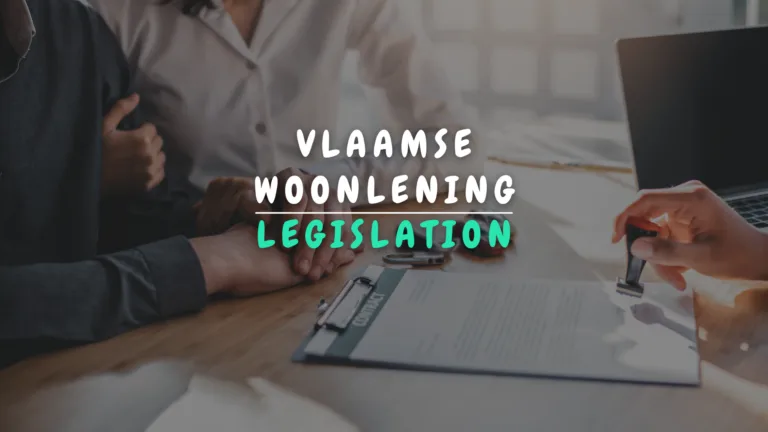Evicting your tenant cannot be done lightly. You must follow this procedure to ensure the eviction is done correctly.
Contents
- What is tenant eviction?
- The role of the CPAS
- The course of eviction in Flanders
- What if you are evicted as a tenant?
1. What is tenant eviction?
With eviction, the landlord mandatorily evicts the tenant. The landlord may not decide this himself. Only a competent judge may do this. The biggest reason for eviction is overdue rent payments by the tenant.
2. The role of the CPAS
As a landlord and/or tenant, it is possible to engage the CPAS to resolve the situation.
2.1. Begeleiding van de huurder
The PCSW analyzes and determines if the tenant can still pay the overdue rent under the guidance of the PCSW. Is that the case? Then the PCSW concludes a guidance agreement with the tenant and landlord.
2.2. Fonds ter bestrijding van de uithuiszettingen
The PCSW engages the Fund to Combat Evictions in preparing the counseling agreement:
- The Fund then gives the landlord 50 percent of the rent arrears (maximum 1,482 euros) through the CPAS. The landlord receives this amount within 10 days of signing the counseling agreement.
- As a landlord, you may not charge interest on rent arrears.
- As a landlord, you are not allowed to evict the tenant, as long as he/she complies with the repayment plan and thus there is no new rent arrears.
- If the tenant does not comply with the repayment plan, then you as the landlord must notify the CPAS. The CPAS must then come up with a solution within 2 weeks.
2.3. Waarschuwing
If an eviction action is initiated in court, the justice of the peace will notify the CPAS of that municipality. The CPAS will contact the tenant and landlord in writing to mediate the situation.
3. The course of eviction in Flanders
3.1. Stap 1: Verhuurder dient een verzoekschrift in bij de vrederechter
- As a landlord, you describe these 3 issues in the petition:
- Arguments about the tenant’s shortcomings: overdue rent, lack of maintenance, no insurance or maintenance certificates, disturbing neighbors, etc.
- Application for certain measures: Obligation to pay rent, house maintenance, submit certificates, etc.
- The justice of the peace adds an invitation to appear at the public hearing: where and when the tenant should come to the justice of the peace.
- Then you must send the petition to the tenant via registered mail.
3.2. Stap 2: Huurder controleert het verzoekschrift
- As a tenant, you check that the information in the petition is correct.
- Contact your landlord or his/her attorney if you have any questions.
- Want legal advice or don’t understand the petition properly? If so, there are many agencies to turn to:
- The CPAS
- The CAW
- A lawyer
- A mediator
- Front-line legal assistance
- Second-line legal assistance
Note: Not all legal advice is free.
3.3. Stap 3: De openbare zitting met huurder en verhuurder
- As a tenant and landlord, you must go to the public hearing. Don’t go as a tenant? Then the landlord will be vindicated in most cases.
- As a tenant, you have 3 options:
- You come to the public hearing yourself.
- You give someone a power of attorney (with signature and copy of ID card).
- You hire a lawyer.
- At the hearing, the justice of the peace pronounces the judgment. The clerk provides the tenant and landlord with a copy of the judgment within 5 days.
This procedure takes an average of 7 to 8 months. Sometimes the procedure can take 2 years, but that usually does not happen if all the steps are done properly.
In addition, an eviction can be costly. These costs start from about 1,250 euros. So think carefully before embarking on such a procedure.
4. What if you are evicted as a tenant?
- You will have exactly 1 month to vacate the property after the bailiff officially announces the judgment.
- The judicial officers must also notify the tenant at least 5 days before the effective eviction.
- Before departure:
- Clear the home completely, including of garbage.
- Give the keys to the bailiff.
- Find storage space to store your belongings.
- Note the meter readings of your gas, electricity and water.
- If you still have stuff in the house or apartment after the day of the eviction, the landlord may put all your stuff on the public road at your expense. Are these belongings in the way on the public road? Then the municipality will come and pick up these belongings and keep them for 6 months, at your expense. Except:
- Clothes
- Beds
- Irons
- Refrigerators
- Closets
- Washing machines
- Cooking stoves
- Study Goods
- Professional Goods
- Dining tables with chairs
- Perishable goods
- Goods harmful to public health

Sources: Justice Belgium, Flanders
Would you like to cite this article as a source? Then use:
Stiasteny, L. (2024, Feb. 26). Tenant eviction: procedure and tips. Apartment.be. Accessed on (date XX/XX/202X), from https://www.appartement.be/uitzetting-huurder/
Related articles:






